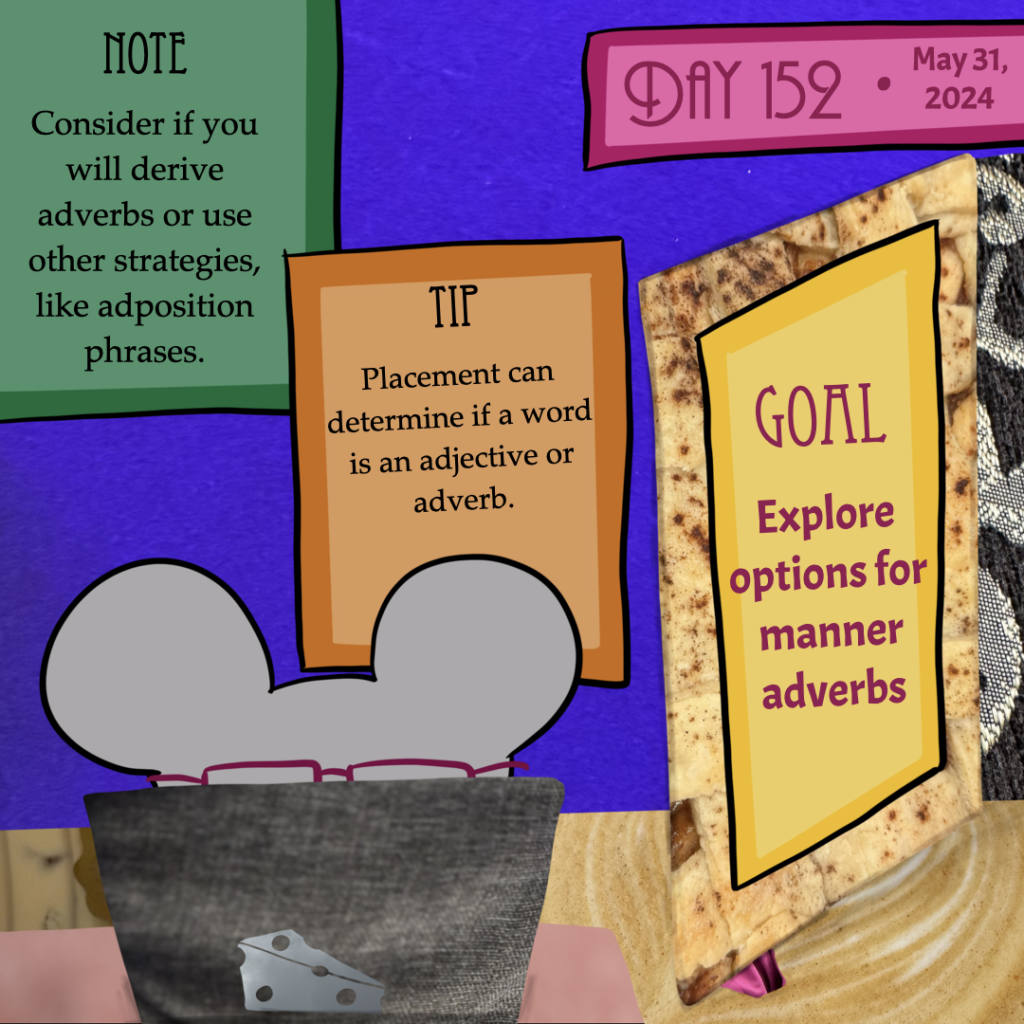
Goal: Explore options for manner adverbs
Note: Consider if you will derive adverbs or use other strategies, like adposition phrases.
Tip: Placement may determine if a word is an adjective or adverb.
Work focus: Learn/Brainstorm/Try
Many manner adverbs are not basic roots. They are often compounded or derived forms, or they may even be best expressed with other constructions, such as adposition phrases (e.g. “quickly” might be expressed as “with speed”). Explore options for how you want to treat manner adverbs in your language. As you think about options, also think about placement within a clause structure—where these adverbs or adverbial phrases occur relative to the verb and its arguments.
You may choose not to create special forms or phrases for manner adverbs but instead use placement to determine whether a word is best interpreted as an adjectival modifier or an adverbial one. For instance, you might contrast a clause like “strong children run” with “children run strong,” where the first clause indicates it is the children who are strong that are running while the second one means the children are running strongly (perhaps with speed or purpose or athletic grace).
You can also opt to have more than one option built into your language, where, for instance, some manner adverbs are derived while others are expressed with adposition phrases. Spend the day brainstorming options and selecting which method (or methods!) that feel best for your language.
